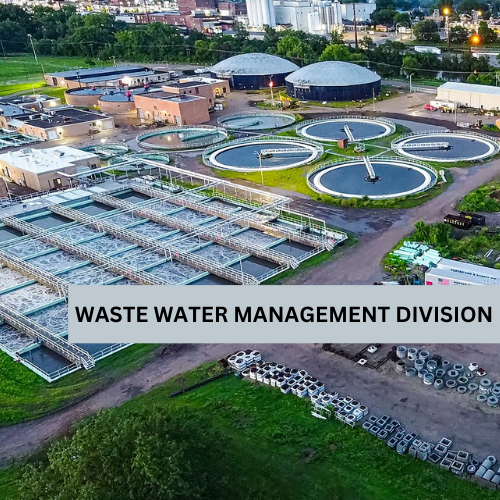
A waste water management system is crucial for treating and managing wastewater generated from various sources, including residential, commercial, and industrial activities. The system aims to remove contaminants, ensuring that treated water meets environmental standards before being discharged or reused.
Collection System:
Pipes and Conduits: A network of underground pipes transports wastewater from homes and businesses to treatment facilities. This includes gravity sewers, pumping stations, and force mains
Lift Stations: Used to elevate wastewater when gravity flow is insufficient, ensuring efficient transport to treatment plants
Treatment Processes:
Primary Treatment: Involves mechanical processes such as screening and sedimentation to remove larger solids from the wastewater. This stage typically removes about 20-30% of biochemical oxygen demand (BOD) and 50-60% of suspended solids
Secondary Treatment: Utilizes biological processes where microorganisms break down dissolved organic matter. This stage can achieve an 85% reduction in BOD and suspended solids
Tertiary Treatment: This advanced stage includes disinfection methods like chlorination or UV treatment, aiming to remove up to 90% of remaining impurities
Key Technologies:
Clarifiers: These devices settle suspended solids during the treatment process, separating them from the liquid
Chemical Feed Systems: Chemicals are added to facilitate coagulation and flocculation, helping to remove finer particles from the water
Aeration Systems: Used in biological treatment processes to supply oxygen to microorganisms that decompose organic matter
Disposal and Reuse:
Treated wastewater can be discharged into natural water bodies or reused for irrigation, industrial processes, or other applications depending on the level of treatment achieved.
Effective waste water management is essential for:
Protecting public health by preventing the spread of waterborne diseases.
Preserving environmental quality by ensuring that effluents do not contaminate natural water sources.
Promoting resource recovery through the reuse of treated water in various applications.
A well-designed waste water management system integrates various components and processes to ensure efficient treatment and compliance with environmental regulations. By focusing on both technology and sustainability, organizations can significantly contribute to environmental conservation while managing wastewater effectively.